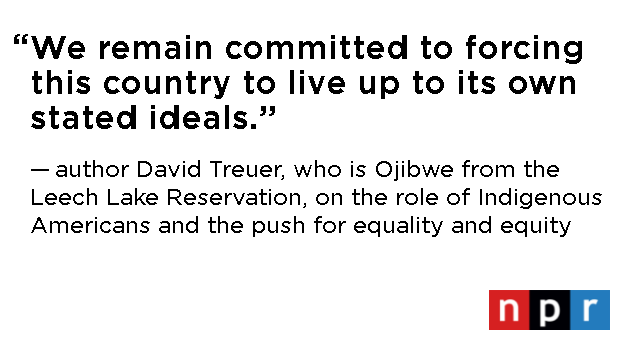
The CDC has reported that in a single 12-month period, fatal overdoses claimed 101,623 lives.
Researchers and drug policy experts say the grim toll obscures an important and hopeful fact: Most Americans who experience alcohol and drug addiction survive.
n.pr/3fsGuJI
Researchers and drug policy experts say the grim toll obscures an important and hopeful fact: Most Americans who experience alcohol and drug addiction survive.
n.pr/3fsGuJI
Americans often see the more destructive side of addiction, drug crime, people slumped in doorways and family members who are spiraling downward.
Less visible are the people who survive the illness and rebuild their lives.
Less visible are the people who survive the illness and rebuild their lives.

A study published by the CDC and the National Institute on Drug Abuse in 2020 found 3 out of 4 people who experience addiction eventually recover.
"I think it kind of goes against our cultural perception that people never get better," said Dr. John Kelly.
"I think it kind of goes against our cultural perception that people never get better," said Dr. John Kelly.
Anna Mable-Jones of Laurel, Md., is one of those success stories. In college, she began experimenting with crack cocaine.
In a pattern researchers say is common Mable-Jones' illness eventually eased. She found treatment that worked and has lived drug-free for more than 20 years
In a pattern researchers say is common Mable-Jones' illness eventually eased. She found treatment that worked and has lived drug-free for more than 20 years
Researchers say this data and this lived experience contradicts a widespread misperception that substance-use disorder is a permanent affliction and often fatal.
While tragic, the 100,000 fatal drug overdoses last year actually claimed the lives of a tiny percentage of the 31.9 million Americans who use illegal drugs.
The roughly 95,000 deaths each year in the U.S. attributed to alcohol represent a fraction of high-risk drinkers.
So why is this ailment often characterized as intractable and hopeless?
Recovery experts say one reason is the fact that addiction is agonizing and hard to treat.
So why is this ailment often characterized as intractable and hopeless?
Recovery experts say one reason is the fact that addiction is agonizing and hard to treat.
Recovery rates aren't the same for everyone. There are differences in how the body and brain respond to alcohol and drugs.
Studies show racial bias makes it harder for Black and Hispanic Americans to find treatment. People in rural areas tend to have less access to health care.
Studies show racial bias makes it harder for Black and Hispanic Americans to find treatment. People in rural areas tend to have less access to health care.
Meanwhile those with more financial resources or milder forms of addiction often heal faster. But even people who use harder drugs for long periods do typically recover. Indeed, most people don't just survive addiction.
Research suggests they often thrive in long-term recovery.
Research suggests they often thrive in long-term recovery.

Researchers say these hopeful findings are significant because they might inspire people to keep attempting recovery even after they endure multiple relapses.
Read more here: npr.org/2022/01/15/107…
Read more here: npr.org/2022/01/15/107…
• • •
Missing some Tweet in this thread? You can try to
force a refresh










